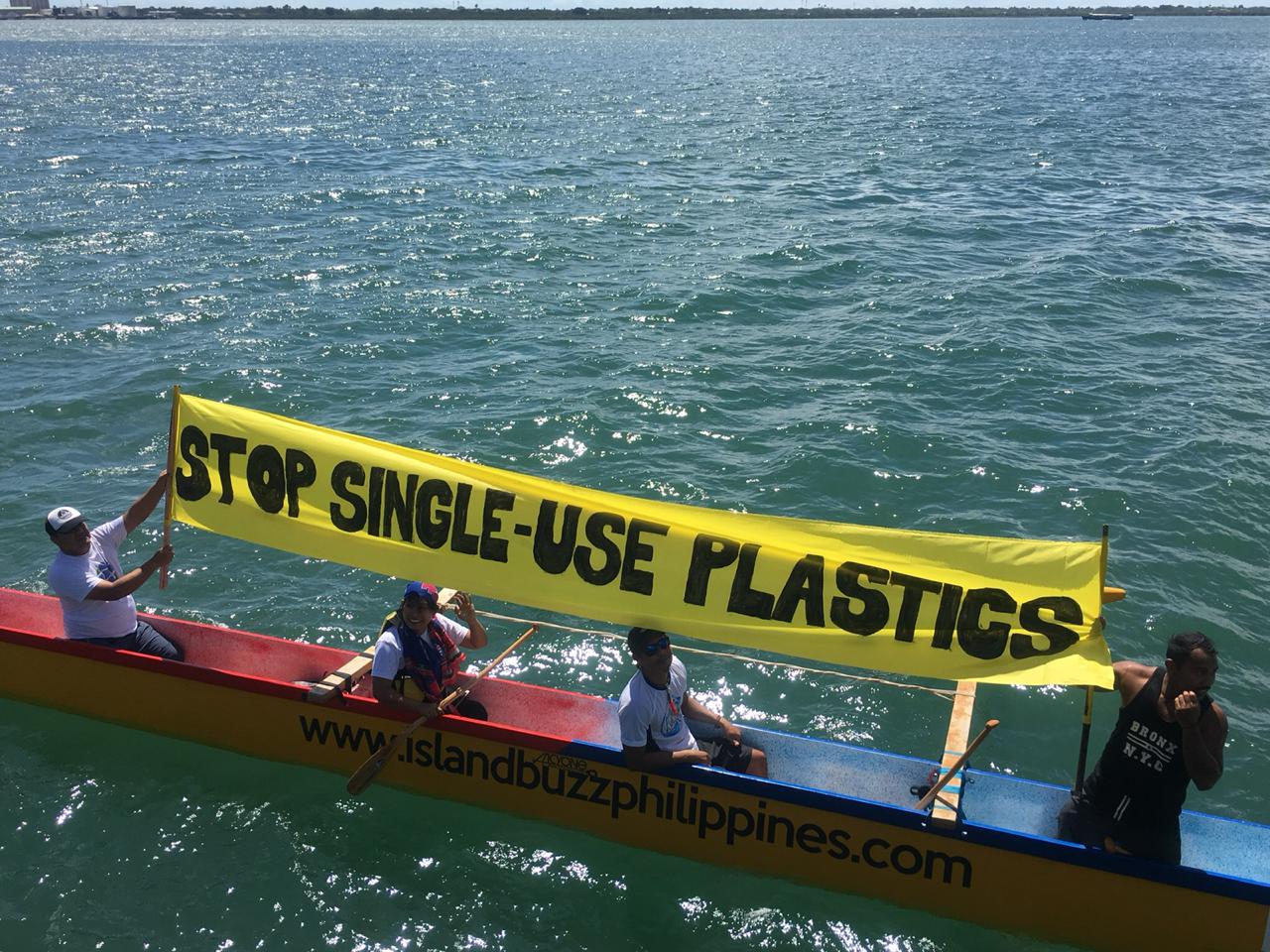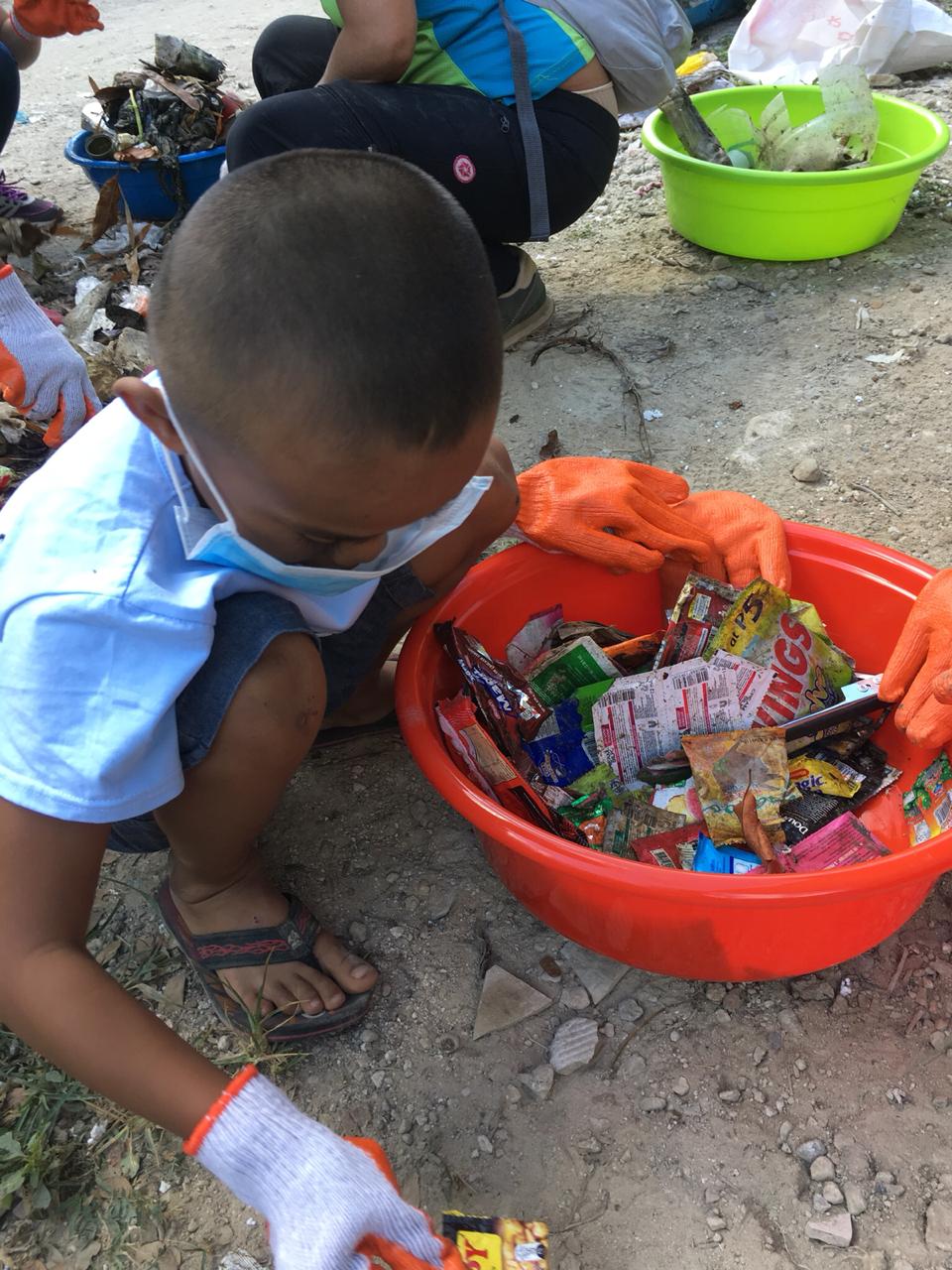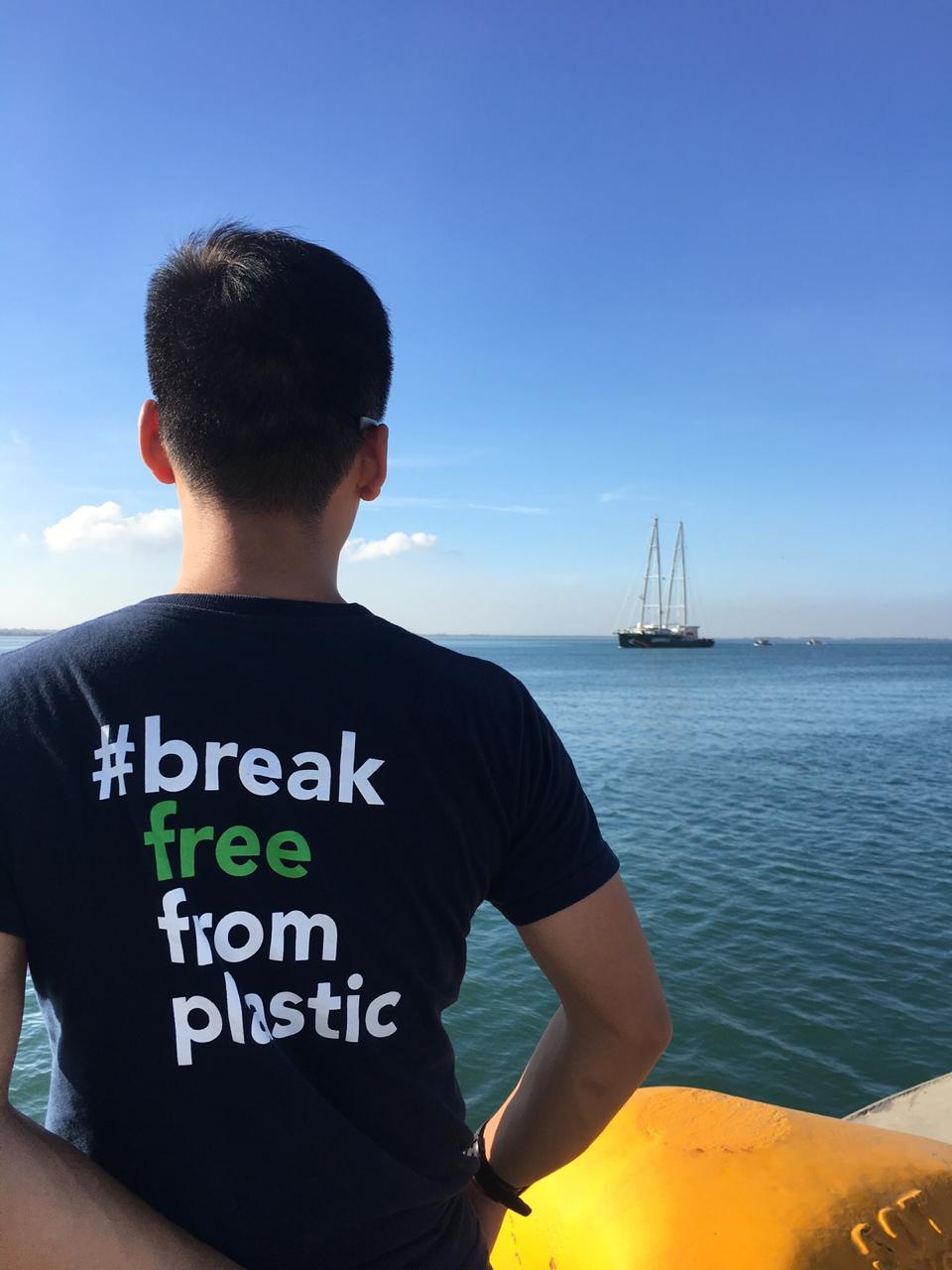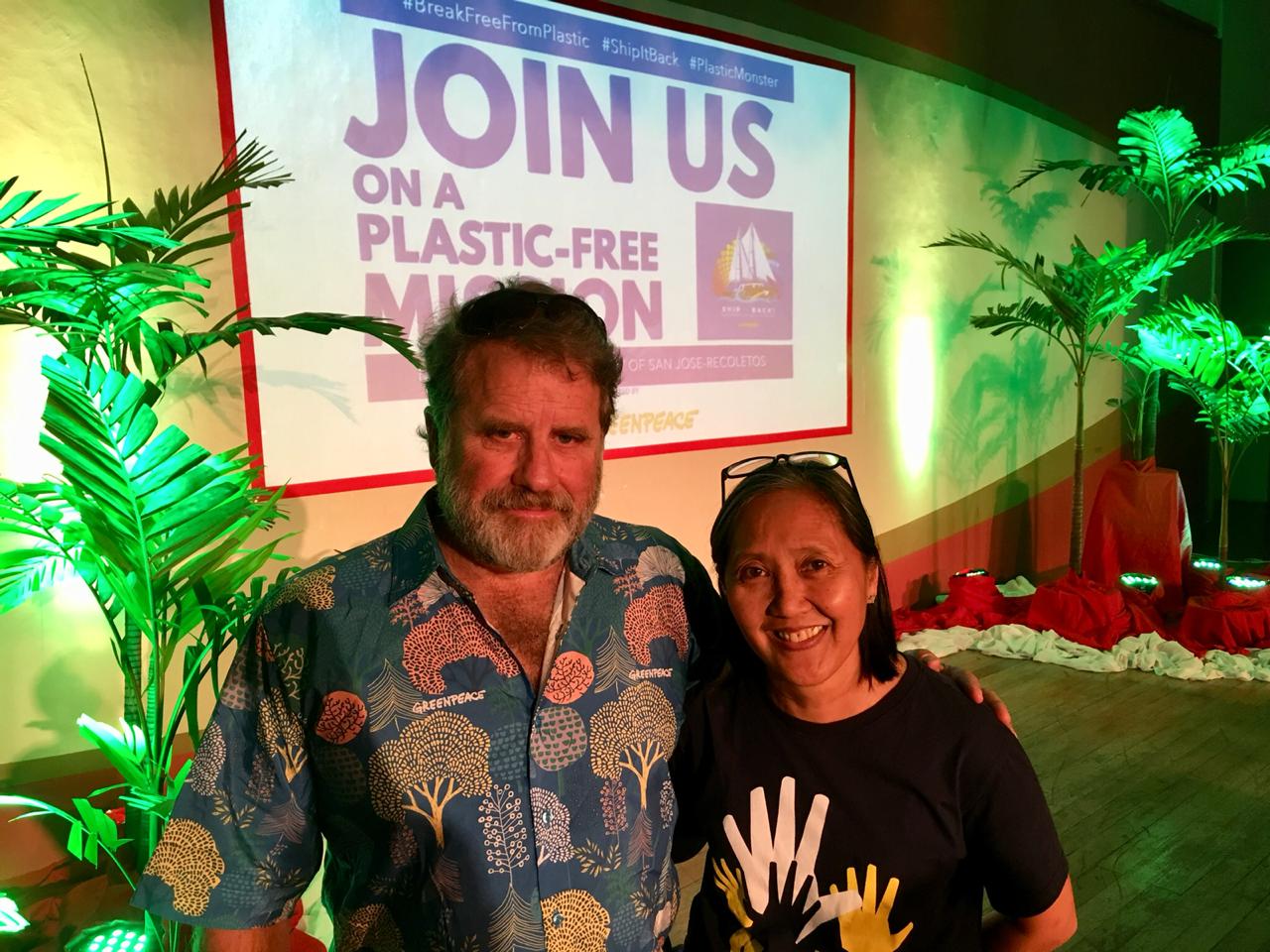Cebu is a major tourist destination in the Philippines. From January to June 2018, domestic and international tourist arrivals were recorded at 3.87 million and 1.89 million, respectively. With the influx of tourist comes the increase in consumption and, consequently, increase in waste generation particularly plastics. In 2017, the Provincial government allocated 40 million pesos for solid waste management. Meanwhile, Cebu City estimated a waste disposal cost of about PHP 300 million in 2017.
Recognizing the plastic waste problem, the Provincial Tourism and Environment and Natural Resources offices of Cebu partnered with Greenpeace for the Cebu leg of the Ship It Back Rainbow Warrior tour this March. The ship’s arrival was welcomed by the Cebuanos with a festive Sinulog dance and paddlers carrying a banner with the message, “Stop Single-Use Plastics.”
A few days prior to the arrival of the ship, the Cebu City Environment office organized a cleanup in 5 areas of the Lahug River. Greenpeace and Break Free From Plastic joined the activity, taking random sacks of waste from 3 of 5 stations to identify corporate polluters. The results were consistent with brand audits from the last two years with the biggest names in food, personal care and household cleaning products as the top corporate culprits with Unilever taking the lead at 17.79%, Procter & Gamble – 16.52%, Nestle – 11.53%, Universal Robina Corp. – 9.33%, Monde Nissin and Liwayway Marketing Corp. tied at 5th place with 7.46%. At 6th place was detergent brand, Gentle Supreme – 6.80%, followed by Prifood – 4.86%, MY San – 3.40%, Rebisco and JBC Food Corp. tied at 9th place with 2.20%, and PT Mayora Indah TBK of popular coffee brand, Kopiko at 2.00%.
Representatives from the province and from Cebu City highlighted initiatives to curb plastic pollution. The Cebu City government, for example, bans the use of single-use plastics including bags, straws, cutlery, plates and other plastic utensils within the City Hall. In addition, the City enforces a ban on plastic bags every Wednesday and Saturday. A city ordinance is waiting to pass into law that would eventually ban plastic bags and other single-use plastics including cutlery, straw, and other utensils with a few exceptions.
At the arrival press conference of the Rainbow Warrior, The Cebu Provincial government issued a declaration for a plastic-free Cebu whereby it would be “adopting laws, ordinances and practices that do away with wasteful and polluting single-use plastic” and committing to promote and encourage the “implementation of zero-waste practices in households and workplaces, and supporting businesses that do the same.”
This is great news for Cebu if they can get the ordinances off the ground and establish systems that would encourage the shift to reusables, other alternative packaging materials and delivery systems. They should also be able to exert pressure on corporations to redesign products and packaging so that the need for single-use disposables is eliminated.
If their ambition is become a Zero Waste Province, then it should also reconsider its plan to invest in waste-burning technologies and other incinerators such as the Aquilini Mactan Renewable Energy, Inc. facility in the Cebu Light Industrial Park, Lapu Lapu City. This facility is a thermal oxidizer that allegedly processes 75 tons of garbage per day. Also, in January this year, the Asian Development Bank (ADB) received proposals for review of investments in “waste-to-energy” facilities, which are clearly burn technologies described as “furnaces” in interviews of some city officials.
There are hopes for this tourism province to become a Zero Waste Province. They are already moving in the right direction with bans on plastic bags and other single-use disposables. They can do more by rejecting the sachet culture forced upon their people by corporations as well as the magic machines peddled by industry to deal with the waste.
Beau Baconguis is the Plastics Campaigner for GAIA Asia Pacific and the Regional Coordinator for Break Free From Plastic in Asia Pacific.







